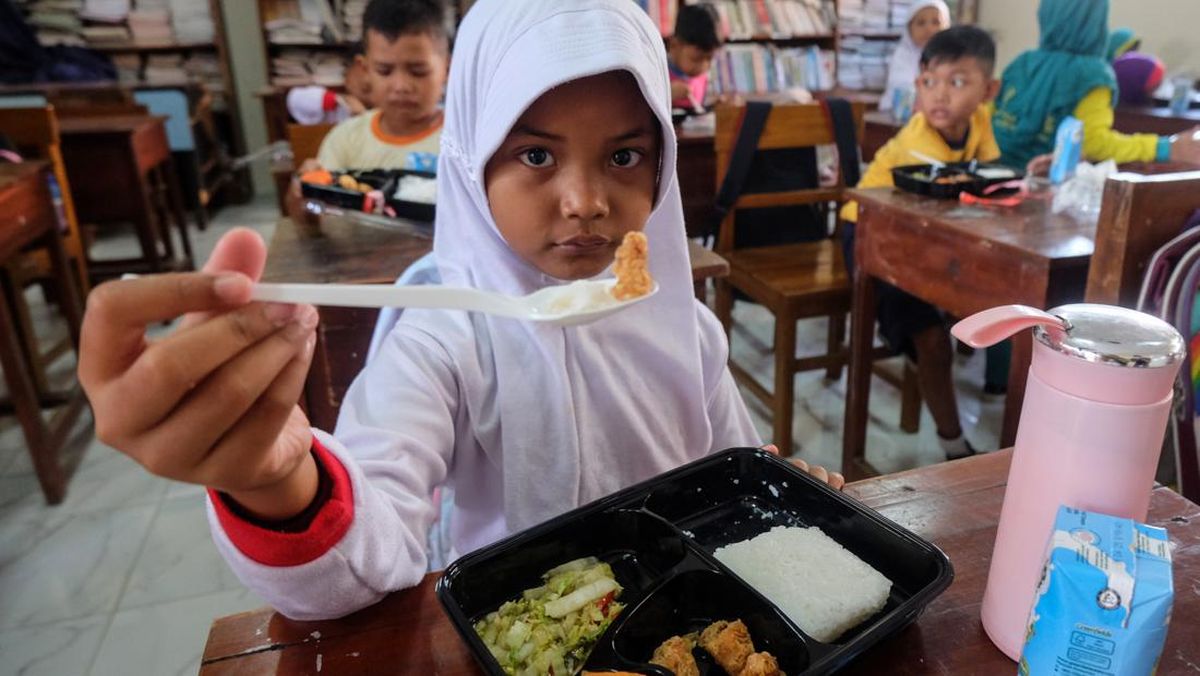Indonesia’s ride-hailing giants, Gojek and Grab, are making significant strides with their pilot programs aimed at providing free nutritious lunches to schoolchildren. These initiatives have garnered attention, including from the government, with figures such as Prabowo Subianto recognizing their potential impact. Leveraging the vast ecosystems built by Gojek Tokopedia Tbk. (GOTO) and Grab, both companies are supporting this program to enhance child nutrition in Indonesia.
Gojek led the charge, launching its pilot program on May 20, 2024. In just five months, Gojek has expanded its reach to 13 cities, distributing meals to 10,000 students across 31 schools. Their target is ambitious, aiming to provide a total of 3 million meals. This initiative has now become an official part of Gojek’s corporate social responsibility (CSR) efforts. Grab, meanwhile, joined the effort later, beginning its trial program in collaboration with the Ministry of Primary and Secondary Education in Yogyakarta.
One key difference between the two programs lies in their geographical reach. Gojek has been able to serve a broader demographic, covering numerous cities and schools across Indonesia. On the other hand, Grab’s pilot is more localized, focusing on a single elementary school in Yogyakarta. While Gojek has already served thousands of students, Grab has not disclosed specific numbers, though it has stated that its meals come in two forms: buffet-style offerings and stainless steel lunch boxes.
The quality of the meals provided is a key priority for both companies, as the food is being served to children. Gojek ensures that the small and medium-sized enterprises (SMEs) it works with meet rigorous hygiene and safety standards, certified by the Indonesian Classification Bureau (BKI). Additionally, Gojek’s ecosystem includes local drivers and digital wallets, helping to streamline the distribution of the meals. Grab, likewise, places a strong emphasis on food safety and nutrition. The company works with SMEs to ensure that meals meet national health standards, supported by scientific nutritional evaluations from experts and organizations like the GSI Lab.
Another aspect that sets the two companies apart is their reporting on progress. While Gojek has publicly announced its success in distributing 10,000 meals and its goal of reaching 3 million, it has not provided a specific timeline for achieving that target. In contrast, Grab has yet to disclose how many meals it has distributed, and its future targets remain unclear. Both companies have committed to ensuring that the meals are nutritionally balanced and safe for children, with regular monitoring by local health and education authorities.
The competition between Gojek and Grab in the nutritious lunch program not only highlights their commitment to social responsibility but also underscores the role of large corporations in addressing public health issues. Both companies are using their logistical capabilities and extensive networks to drive the success of these programs, with the potential to impact thousands of students across the country.
BISNIS.COM
Read More






 Monday, 26-01-26
Monday, 26-01-26







